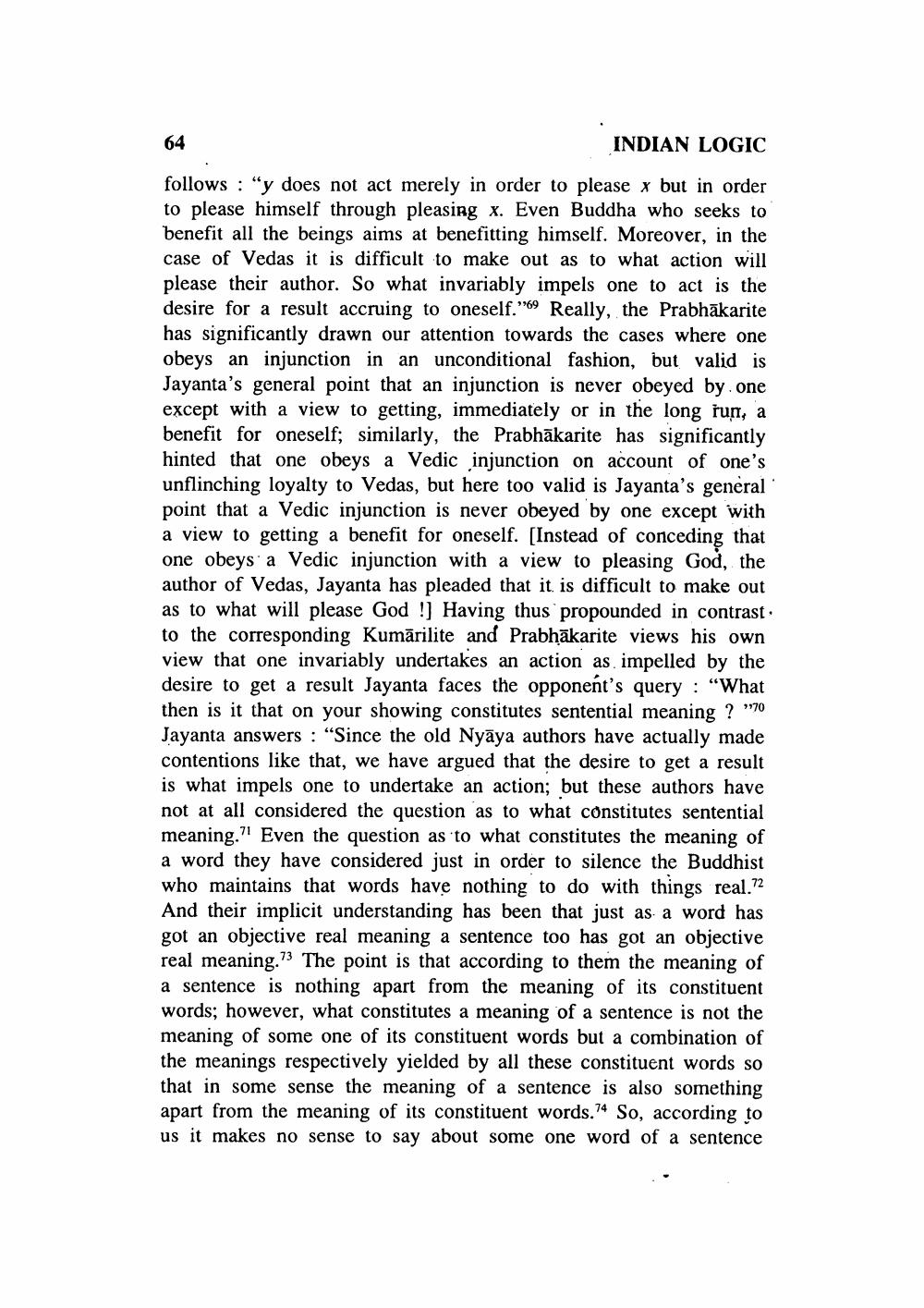________________
64
INDIAN LOGIC
follows : "y does not act merely in order to please x but in order to please himself through pleasing x. Even Buddha who seeks to benefit all the beings aims at benefitting himself. Moreover, in the case of Vedas it is difficult to make out as to what action will please their author. So what invariably impels one to act is the desire for a result accruing to oneself.”69 Really, the Prabhākarite has significantly drawn our attention towards the cases where one obeys an injunction in an unconditional fashion, but valid is Jayanta's general point that an injunction is never obeyed by one except with a view to getting, immediately or in the long run, a benefit for oneself; similarly, the Prabhākarite has significantly hinted that one obeys a Vedic injunction on account of one's unflinching loyalty to Vedas, but here too valid is Jayanta's general point that a Vedic injunction is never obeyed by one except with a view to getting a benefit for oneself. [Instead of conceding that one obeys a Vedic injunction with a view to pleasing God, the author of Vedas, Jayanta has pleaded that it is difficult to make out as to what will please God !] Having thus propounded in contrast to the corresponding Kumārilite and Prabhākarite views his own view that one invariably undertakes an action as impelled by the desire to get a result Jayanta faces the opponent's query : "What then is it that on your showing constitutes sentential meaning ? »70 Jayanta answers : “Since the old Nyāya authors have actually made contentions like that, we have argued that the desire to get a result is what impels one to undertake an action; but these authors have not at all considered the question as to what constitutes sentential meaning." Even the question as to what constitutes the meaning of a word they have considered just in order to silence the Buddhist who maintains that words have nothing to do with things real.12 And their implicit understanding has been that just as a word has got an objective real meaning a sentence too has got an objective real meaning.13 The point is that according to them the meaning of a sentence is nothing apart from the meaning of its constituent words; however, what constitutes a meaning of a sentence is not the meaning of some one of its constituent words but a combination of the meanings respectively yielded by all these constituent words so that in some sense the meaning of a sentence is also something apart from the meaning of its constituent words.74 So, according to us it makes no sense to say about some one word of a sentence




